Once upon a time, before marijuana was legalized at all in North America, the public knew one thing and only one thing about the active compounds in the plant: THC (tetrahydrocannabinol). THC gets you high, full stop, the only “active ingredient” most of us heard of.
Since legalization began, research has jumped down the long rabbit hole that is the complex chemical makeup of everyone’s favorite weed. It turns out that marijuana is composed of dozens of organic compounds, which we are just beginning to investigate. So far we’ve uncovered 113 cannabinoids and 120 terpenes in various strains of cannabis. This makes pot one of the richest known plants for concentration and variety of terpenes, as well as potentially significant psychoactive compounds, cannabinoids included.
Our DabConnection staff has been fielding questions about terpenes for a while now. They’re coming in from mail, comments, forum posts, and random people stopping us at dispensaries. We decided to put our research hounds on the job to help clear up some of the deepest mysteries about terpenes.
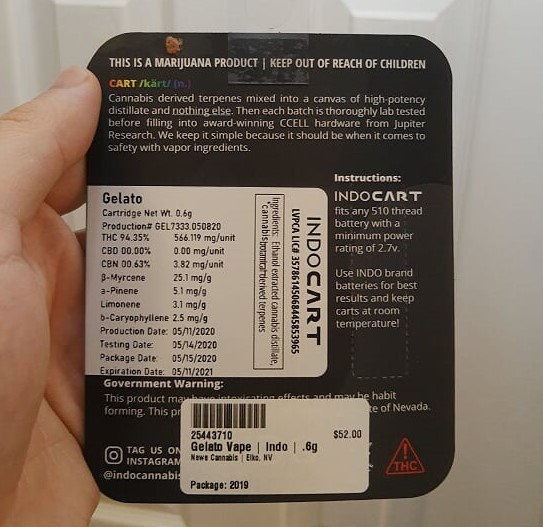
1) How important are terpenes to the cannabis experience?
Very important! THC, CBD, Delta 8 THC, and other cannabinoids by themselves are almost completely odorless and tasteless. The terpenes contribute the aroma and flavor of cannabis products. An isolated cannabinoid will give you the effect of just that cannabinoid, like a prescription medicine. Terpenes act in conjunction with cannabinoid compounds to deliver a fuller effect.
The difference is just like the difference between taking a vitamin C tablet and eating an orange. The orange has a full organic compound profile which works in conjunction with the vitamin C. Plus, the tablet is highly processed, which causes the vitamin C to lose some of its potency. There may be some similar effect with processing compounds in cannabis.
But the bottom line is: try some pure THC or CBD, then try some in a more natural concoction that includes a terpene profile. You will notice the difference in a blindfolded test!

2) Do terpenes alone get you high?
No they do not, at least not the psychoactive effect we speak of from THC. When we talk about a “high,” we mean the combination of euphoria, gratification, tranquility, stimulation, and other mental effects.
However, this is not to say that terpenes play no role in the mental state you experience from cannabis! By themselves, some terpenes have a mild mental effect including stimulation, arousal, or sedation. Some of the better-known ones are:
-
Myrcene – sedating, relaxing, enhances THC effects
-
Linalool – sedating, calming
-
Pinene – alertness, memory retention
-
Limonene – stress relief, mood elevator
Terpenes are part of why cannabis is recommended for psychological maladies such as anxiety, depression, PTSD, and mood or stress disorders.
You can easily prove to yourself that terpene effects don’t get you high, because all the psychoactive terpenes are also found in other plants. Mangoes have myrcene, citrus fruits have limonene, and the spice basil contains pinene. Go ahead, have yourself a big mango and orange fruit salad seasoned with basil. You may feel better, since your body just got a shot of fresh fruit with all its vitamins and antioxidants. You may even be in a jolly mood. But would you describe that as a “high”? Probably not.
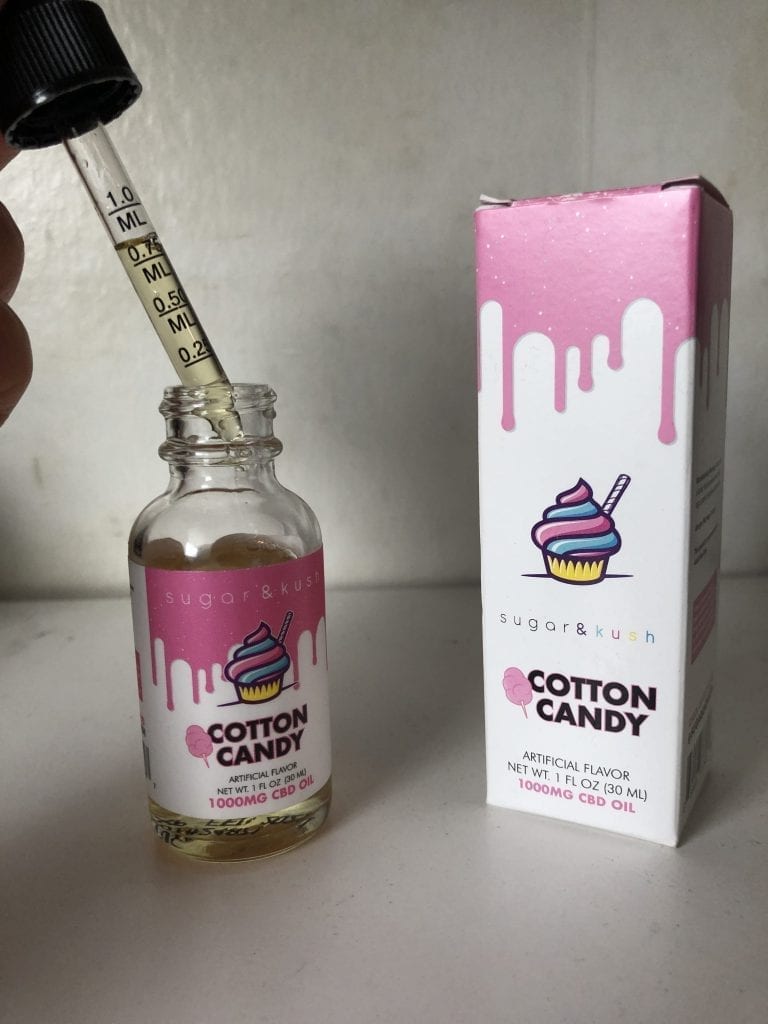
3) Does CBD oil have terpenes?
CBD (cannabidiol), by itself, is just one of the many cannabinoids in pot. CBD can be derived from hemp or cannabis proper, both of which also have terpenes. Depending on the extraction process, CBD can include terpenes or not. Most CBD products will now list on the label whether they contain terpenes or other cannabinoids as well. Any product advertised as “full spectrum” will generally include terpenes too.
But CBD by itself can be made completely terpene-free. In fact, it’s even possible to make synthetic CBD oil, no cannabis plant involved.
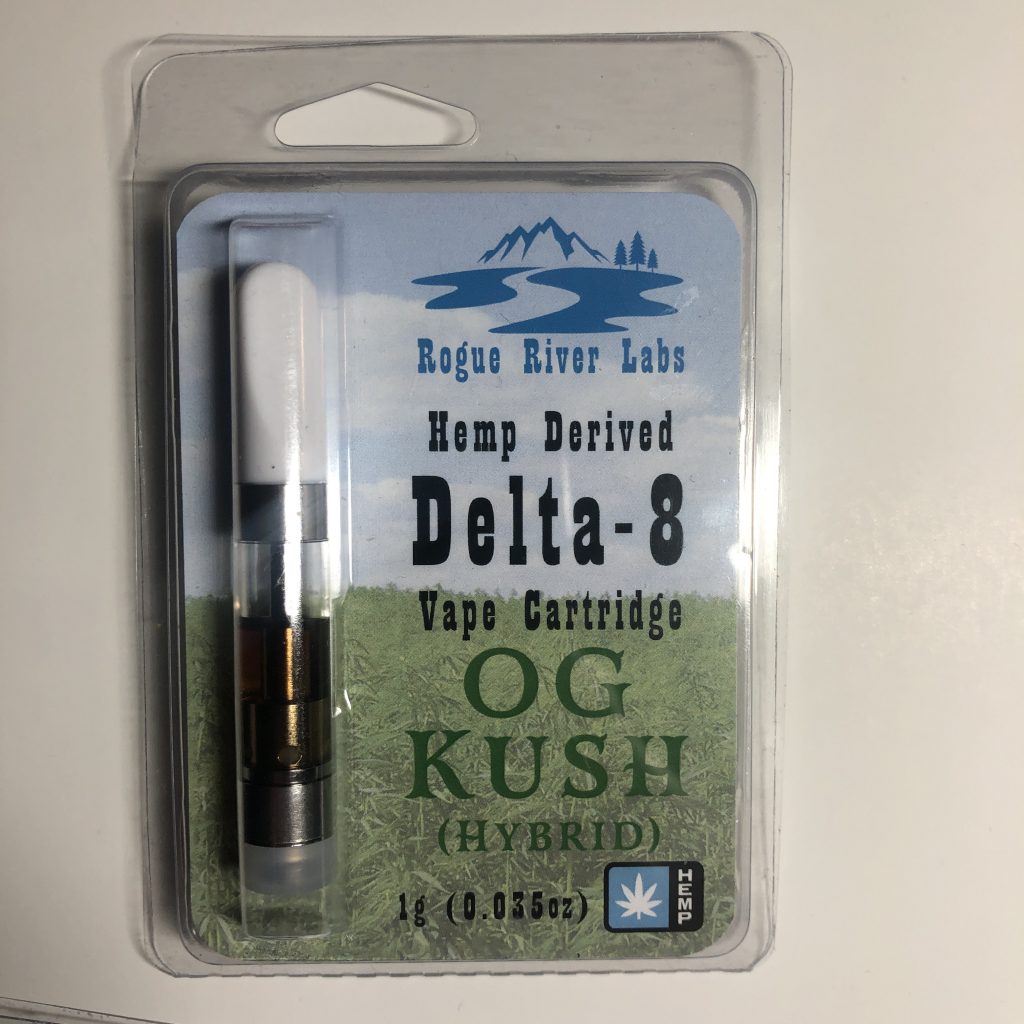
4) Are there terpenes in Delta 8?
Like CBD oil, Delta 8 THC is a stand-alone cannabinoid. Delta 8 has effects similar to THC (properly called “delta 9 THC”), but far milder. As with CBD, delta 8 has its own cult following as an alternative cannabis derivative product, thanks to its more legalized status and preferred effect for some medical and therapeutic applications.
Delta 8 products, especially vapes, will usually list the terpenes on the label if they contain them. Keywords like “full spectrum” or “naturally extracted” also apply.
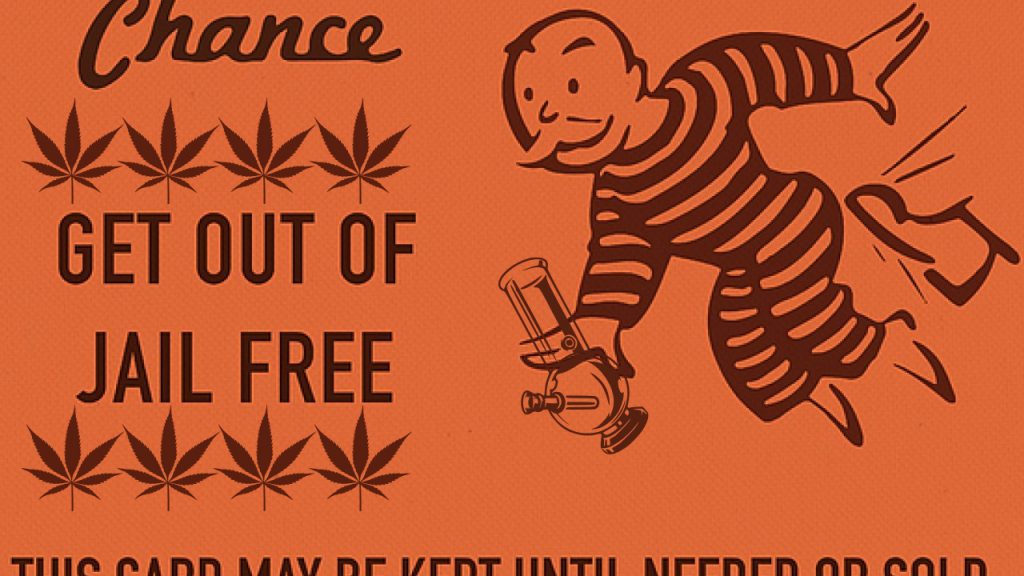
5) Are terpenes by themselves legal?
Of course! Terpenes are found throughout nature, in almost every known plant. Terpenes are legal in not just the US, but around the world. It would be pretty impossible to outlaw terpenes – we’d all starve to death!

6) Can drug-sniffing dogs be fooled by botanical terpenes?
Yes they can! The main component of cannabis which drug-sniffing dogs go by is beta-caryophyllene (the same as caryophyllene, but more of a proper name). This same terpene is also found in black pepper, cloves, oregano, basil, rosemary, hops, and so on.
While we can’t find any evidence of drug-sniffing dogs being thrown off by somebody toting the whole spice rack around in their luggage, there is a claim that 75% of the time when a drug dog triggers, it’s a false positive. This is actually more likely due to the fact that drug dogs can smell residue. Frequently they will trigger off currency because it’s so common to use a rolled-up note to snort powders. Keep weed in your cargo shorts for a week, then remove it and wear the shorts while you go have a dog sniff you – they will still trigger!
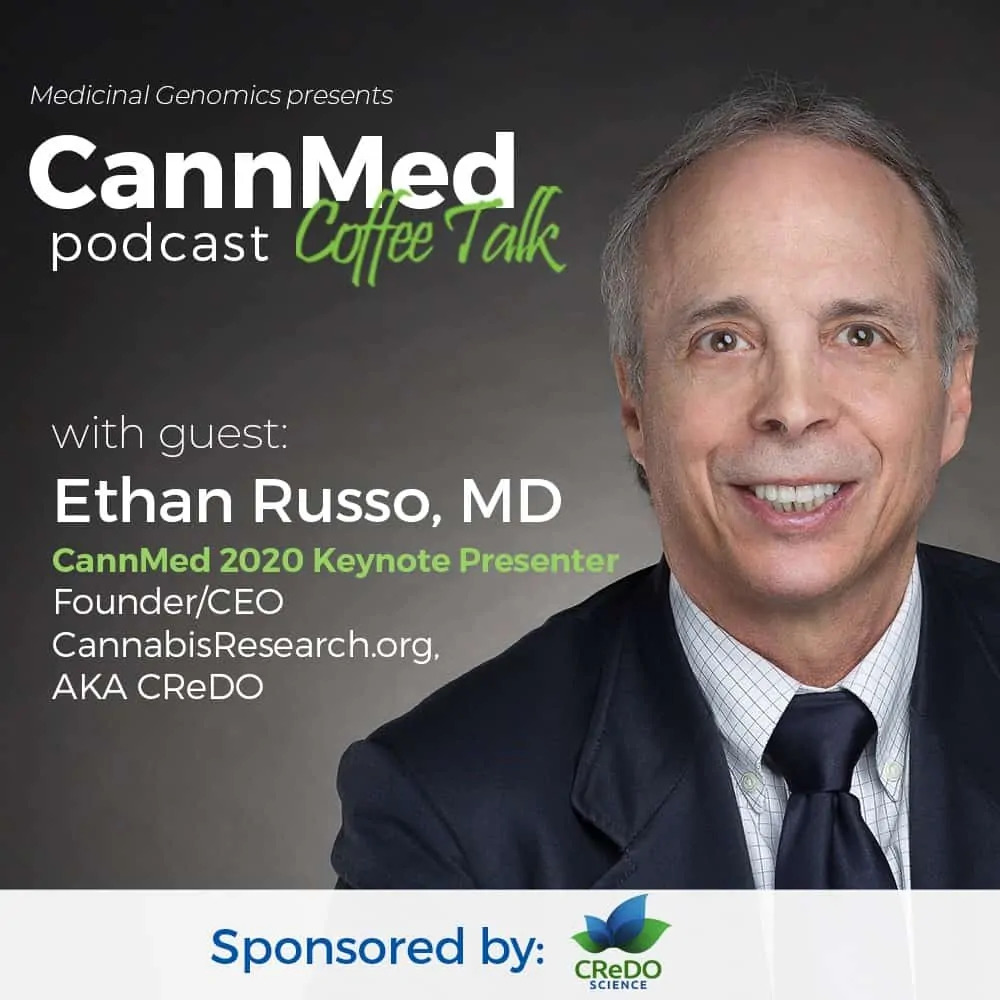
7) Is the entourage effect proven now?
The entourage effect, which is the full-body effect from cannabis products, has been widely verified by generations of users. Terpenes are the most common cited cause of the entourage effect. But due to cannabis’ prohibition, scientific research was hampered. Now that laws are loosening, scientists are looking into this, but so far we don’t have 100% conclusive experimental proof. We do, however, have some strong theories.
The main man to talk to is Ethan Russo, a neurologist who is also the founder and CEO of CReDO Science, a company dealing in cannabis products. Russo asserts in interviews that “experiments support certain of these physiological effects [of terpenes], ideally, in clinical trial work.” Russo has a full paper published at NCBI, on “The Case for the Entourage Effect and Conventional Breeding of Clinical Cannabis.”
Dr. Jordan Tishler, Instructor of Medicine at Harvard Medical School, states in interviews that “the entourage effect is real” and that this “also explains why pure THC is not particularly effective, and whole-plant cannabis is better.”
This Science Direct paper is perhaps the final word we have presently, stating “Some cannabis phytomolecules interact, causing enhanced biological activity. Defining this phenomenon, known as the ‘entourage effect’, is one of the leading challenges in the field of research.”
One famous study treated epilepsy patients with either pure CBD or full spectrum CBD with terpenes and found better response in the full-spectrum group. That is a sign that something could be at work, but still not considered conclusive until we separate all the contributing ingredients.
So: Research is ongoing, but science is slow. Note also that research into the entourage effect sometimes focuses on different cannabinoids (THC, CBD, etc.) working together rather than isolating the terpenes’ effects. Let’s put it this way: We mentioned at the top “113 cannabinoids and 120 terpenes” are found in cannabis (and counting!). Now to do exhaustive research, we have to test each individual compound to see what effect it has, then isolate and test a pair of compounds to see if they have an enhanced effect, then repeat these steps for every possible pair of all 233 compounds! Even if the entire world pitched in on this research, it would not be done overnight.

8) Is there confirmed medical research showing the benefits of terpenes?
That is a far easier question to answer. Yes, there’s plenty of confirmation into benefits of individual terpenes in experiments controlled against placebos. This applies not just to cannabis, but to the plant kingdom at large. Various terpenes have been known to be effective as insect repellant, antifungal agents, antibacterial agents, anesthetics, and cancer-fighting drugs.
Results on individual cannabis terpenes, however, may differ. Some are proven, some are still in clinical trials, and some don’t seem to do much.
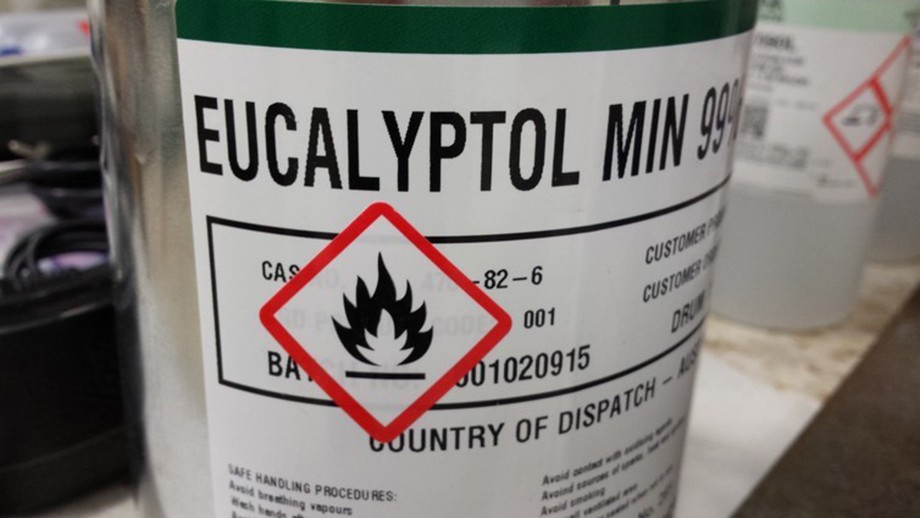
9) Are there any harmful terpenes?
Remember that terpenes are found in plants throughout nature. There are some plants, such as toxic and poisonous species, which are proven harmful. As for terpenes in cannabis, very few if any could be said to have outright harmful effects, at least not in the concentrations we see in cannabis.
However, as in all of nature, effects change when we scale the dosage. If you just concentrate one terpene into pure form, there can be damage potential. The most common harmful effect from terpenes is flammability – pinene and carene are both components of turpentine. Meanwhile, eucalyptol is lethal at high doses, but we’re talking about a third of a pound of pure eucalyptol consumed at once. You’d have to smoke roughly a truckload of weed in one sitting to get close to that dosage.
Several users do report allergic reactions to some terpenes, including some found in cannabis, like linalool. As for vaping, some studies have suggested that vaping terpenes releases trace amounts of toxic chemicals. But you could say the same for burning a pile of autumn leaves.
Keep in mind that marijuana has been cultivated since 500 BC, in continuous usage since then, with so far a mortality rate of zero. So at least within bounds of normal consumption, if there were anything deadly in it, we would have found it by now.
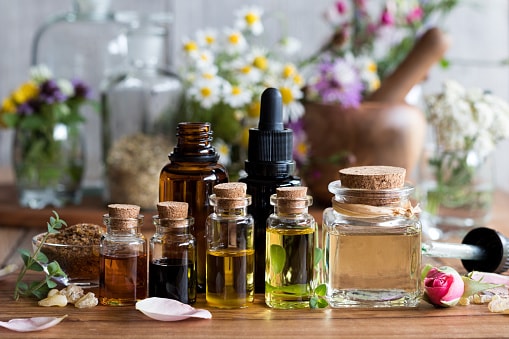
10) Aren’t terpenes just “essential oils”?
At least most terpenes fall into the same category as essential oils.
It is unfortunate that so many years of pseodoscience and quackery have given plant-based compounds a bad rap. Let us be mindful of the fact that much of our medicine comes from natural plants in the first place. Like anything in nature, essential oils and terpenes can be misapplied. For example, there is consistent quackery around vitamin D, but just because somebody makes outrageous claims for it does not mean that vitamin D does nothing.
There are, indeed, suspicious claims going around about terpenes and other cannabis-derived products as well. For example, that CBD bathbombs fad that was going around turned out to not have much science supporting it.
On the positive side, sometimes a long-standing claim is eventually proven out. Chamomile, which shares the terpene bisabolol with cannabis, has a long-standing tradition in folk medicine. When modern science came along to test the beneficial claims, many of them were cast into doubt but a few of them were proven true.
We here at DabConnection are careful not to make unfounded health claims for or against cannabis. When we do refer to a health claim, either we link to a reasonably scientific source to back it up, or we identify a claim as unproven. All consumers of cannabis products should likewise maintain healthy skepticism. Cannabis derivatives have been proven effective in some medical applications, but that does not make cannabis a panacea.

11) Why do botanical terpenes taste worse than cannabis terpenes?
Extraction of any plant-based compound is never a completely sterile business. Many terpenes are extracted through simple means such as steaming and distilling. Inevitably, some flavor from the source plant carries over. So while some weed strains are appreciated for having a peppery taste, it’s not as nice when the caryophyllene comes from actual pepper.
Botanical terpenes typically have an off flavor, reminiscent of an herbal vape, and are often harsh on the throat besides. Natural cannabis terpenes at least hit more like pot, because they are pot.
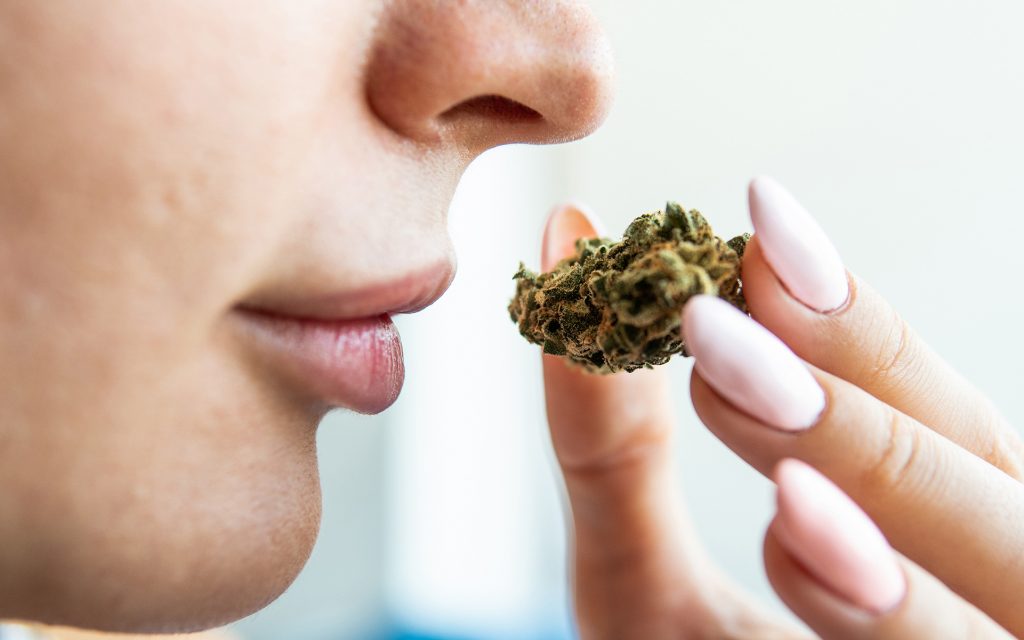
12) Are terpenes responsible for marijuana’s strong, pungent odor?
Yes indeed! In fact, terpenes across the plant kingdom are the cause for many plants’ aromas and flavors. Pinene, common to cannabis and pine trees, is a strong component of the sap of trees in the conifer family and is responsible for that “fresh pine” smell. Terpenes in general are also widely used in the perfume industry, precisely because they carry so much of their source plants’ signature aromas.

13) What extraction method is best for preserving the full spectrum of cannabis?
Live resin and rosin are so far the preferred methods of cannabis extraction for preserving the plant’s full spectrum effects.

14) What is the purpose of terpenes in the first place?
In nature, plants evolved terpenes, alkaloids, and other organic compounds to serve many roles, chief among them moderating their interactions with other wildlife. Many terpenes double as effective insect repellant or anti-microbial agents, chasing away harmful pests and fungi. Some plants exhibit a nasty taste or odor to ward off herbivores who would otherwise graze on the plant and destroy it before it had reached maturity.
However, there are nearly as many cases where terpenes serve a function to attract wildlife selectively. The familiar smell of freshly-mowed grass, for instance, is a chemical “distress signal” which attracts predators of grazing herbivores. And of course, the sweet scent of flowers is attractive to more than just humans. It’s also there to attract pollinating insects which the plant depends upon to reproduce.
So the question is more “what purpose don’t terpenes serve?” Each plant species has its own unique strategy to promote its survival, and chemical production is the first line of defense.
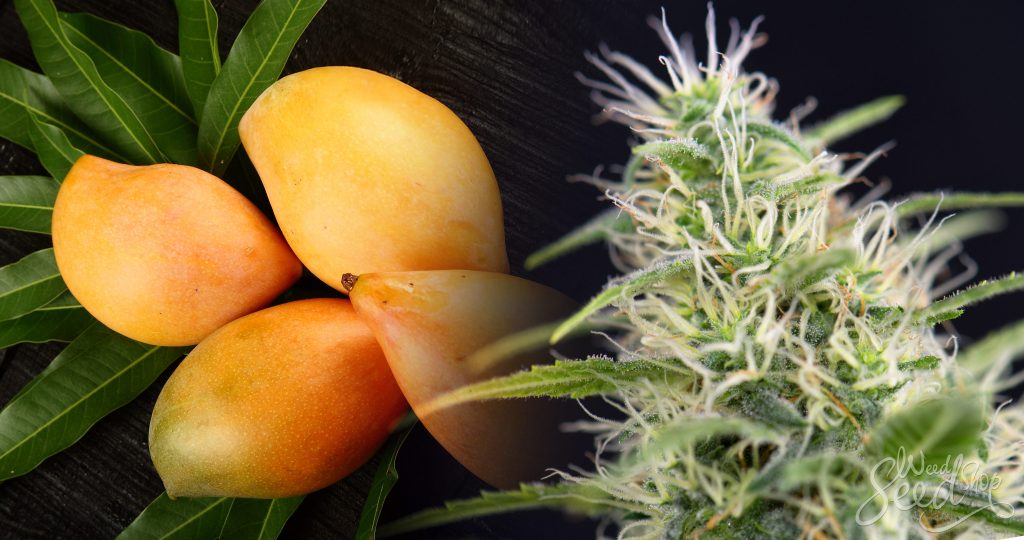
15) Do mangoes have some effect with cannabis terpenes?
Yes, that’s been confirmed for a long time. Mangoes share the terpene myrcene with cannabis. Myrcene binds to some of the same receptors that cannabinoids do, resulting in a more pronounced entourage effect. For best results, eat mango about 45 minutes before vaping or smoking marijuana. All this really does is make the buzz a bit more mellow and relaxing.
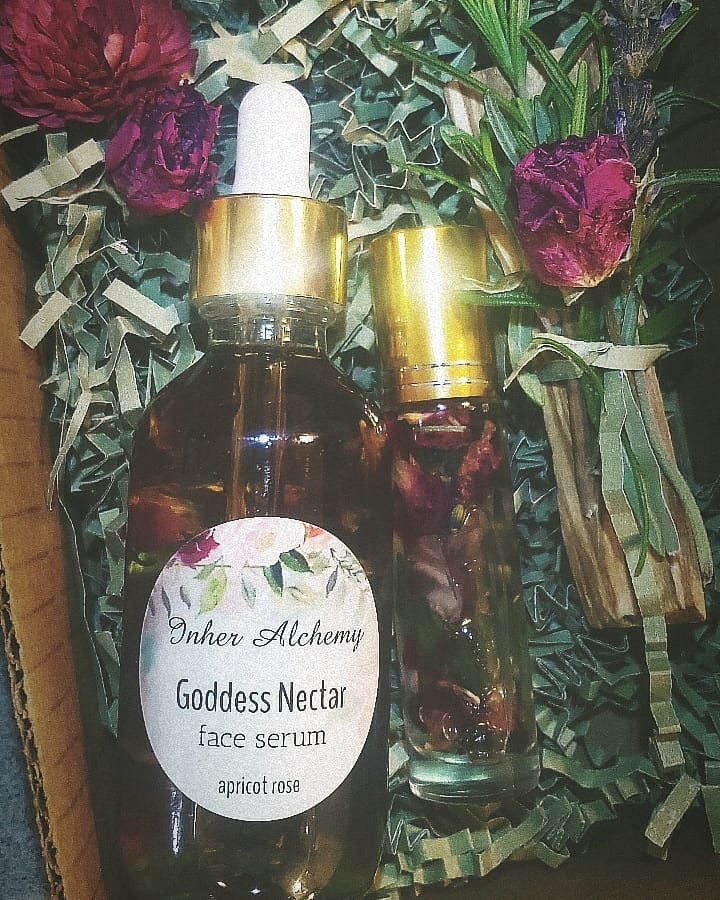
16) Are terpenes effective in topicals or aromatherapy?
In the case of topical application, which means applying it externally, some terpenes do have therapeutic effects such as being anti-bacterial, anti-inflammatory, or acting as a healing or anesthetic agent. Recall above that some plants produce terpenes as an anti-fungal measure. Well, guess what we use in ointments to treat fungal infections?
There is a lot more skepticism about aromatherapy. Conventional wisdom is that it’s pure baloney. A lot of aromatherapy has become tied up in New Age alternative medicine, to the point where it speaks of “eliminating toxins” and “toning and firming the body.” Not a smidgen of scientific evidence for this class of claim exists, and it would be ludicrous to think that merely inhaling a scent can make you thin! The chief argument against aromatherapy is not that the terpenes do nothing, but that merely inhaling them from a distance is too weak of a dosage.
The bottom line for aromatherapy is that for every claim that has some slight merit, there’s ten more that are just bunk. As we mention before, it’s good to preserve some skepticism and check out claims for yourself. It’s pretty easy to verify that cannabis helps stimulate the appetite and overcome nausea for cancer chemotherapy patients. That is miles away from suggesting that anything in cannabis cures cancer.
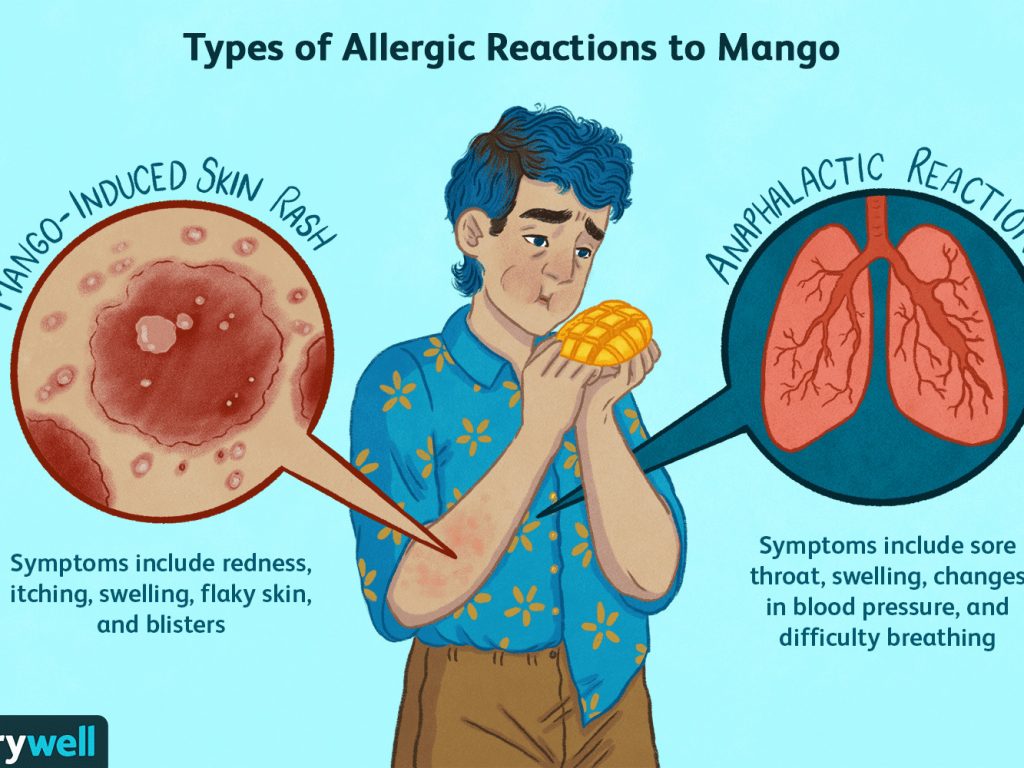
17) Are there any terpenes with bad side effects?
As with any plant-based compound, results will vary from one individual to the next. Just as some people experience a bad taste from cilantro due to a genetic issue, some people can experience bad reactions to cannabis or any of its derivatives.
Quite a few terpenes can trigger allergic reactions, such as linalool, which is found in both cannabis and lavender. Check the individual terpene’s studies for possible adverse effects.
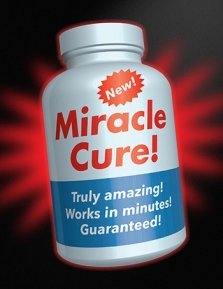
18) Are there miracle drugs waiting to be discovered in terpenes?
Let’s not say “miracle,” but you could very well support the claim that future cannabis research has the potential to unlock more medical applications. We have just been delayed from research by decades of prohibitory laws. As we mention above, there’s over 230 organic compounds in cannabis, some of which we didn’t know existed until just a few years ago. With what we’ve found so far, cannabis shows promise as a source of many useful compounds. However, remember that terpenes are not unique to cannabis, so most terpenes in cannabis have had more research from other source plants already.

19) Does vaping give the full effect of terpenes?
The answer varies depending on the temperature and terpene. Terpenes are effective when activated in the range from the low 200s F to the high 300s F. But provided you’re vaping the right temperature, it can be a more effective way to consume terpenes than smoking.

20) Are terpenes just a lot of hype?
Terpenes are definitely the subject of hype right now!
It was inevitable that this would happen. You take a benevolent drug enjoyed by generations since the dawn of agriculture, outlaw it for a near-millennium, and then slowly legalize it gradually after realizing its medical applications. Of course people are going to be spun into a frenzy about it!
There is something to terpenes and they are a fascinating aspect of cannabis, but there’s a lot more news coming out about the organic components of the hemp family besides. They are an enjoyable part of the cannabis experience with their own therapeutic applications in some cases, but perhaps they have been the subject of too much attention after being shunned for so long.













